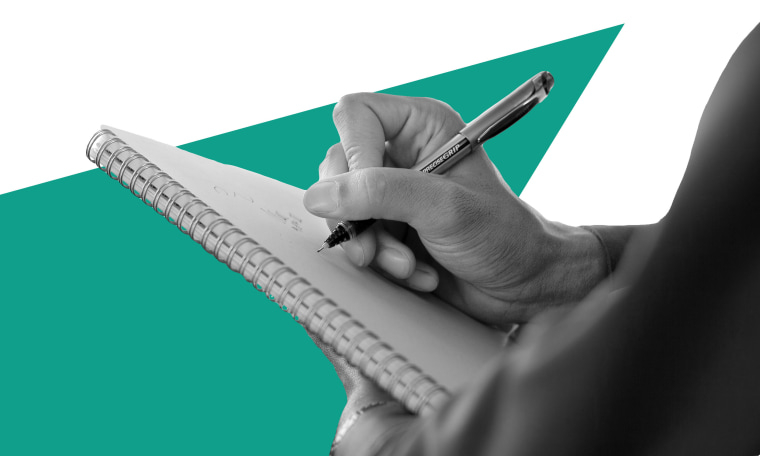If you’re looking to improve your financial life or your health, there is one move you can make that will pay greater rewards than any other. It’s decidedly low-tech and — I feel I should warn you — a little bit tedious. But after 25 years of helping people with their money, I have never found anything quite as eye-opening.
Are you ready for it? Here it is: As you go through the day, write your behavior down. If you’re looking to save money, you track your spending. If you’re looking to shave pounds off the scale, you record what you’re putting in your mouth.
Why? As a human being, you’re a little like a self-driving car that’s been on autopilot for too many years. According to research from Duke University, about 40 percent of what you do every day isn’t a decision you’re making, but rather a habit. You go to Starbucks and grab a Grande Vanilla Latte every morning on your way into the office not because you choose to, but because you always do. You’ve trained yourself to not even think about that roughly $5 (not to mention 250 calorie bomb).
To your wallet and your stomach, they don’t even count. But, of course, they do — particularly when you realize that they add up to about $25/1,250 calories a week, about $100/5,000 calories a month and about $1,300/65,000 calories a year. For some, that’s rent. And almost 10 pounds.
You have to be detailed. And you have to be vigilant. But if you can stick with it a solid couple of weeks (or even better, a full month), it absolutely works.
And that’s just one purchase. Over the course of a week, you make many. And the fact that you probably make them electronically isn’t helping matters any. Research has already shown that we spend more with credit than we do with debit and more with debit than with cash.
Why? Credit, which is really spending someone else’s money, feels less real than debit, which is spending your own. And debit, spending your own money but with a slight delay, feels less real than paying with cash, which is spending your own money in the moment.
Recently, Finder.com looked at digital wallets, new payment platforms that have college students (and other millennials) paying each other back for shared Uber rides, dinners and pretty much everything else, with a few swipes on their mobile devices. Digital wallets include Venmo, Facebook Messenger, Google Wallet, Apple Passbook and others. It found that 50 percent of millennials use them at least once a month — and that they're more likely to spend more than other generations when using those digital wallets.
In order to regain control over your money, you have to go old-school. Write down what you’re spending in real time on a piece of paper or, alternatively, on a document you set up and maintain on your phone. You have to be detailed. And you have to be vigilant. But if you can stick with it a solid couple of weeks (or even better, a full month), it absolutely works.
At the end of each day, see how much you’ve spent on various categories — eating out, clothes, grooming, last-minute runs to the grocery store for ingredients, ATM fees, lottery tickets, etc. At the end of each week, add your day-by-day totals into a weekly tally.
Then go back and look at it. How does the amount of money you’re spending at, say, Chipotle, make you feel? How about the amount you spent on Ubers? Gifts? Gimmes to get your kids to stop whining in the grocery store line?
There will be places where you’re spending more than ever thought you were. That’s fine. Now you have the ammunition you needed to make changes. Set a daily goal for the amount you’d rather see yourself spend in the categories that are particularly troublesome. Then track again the following week — and the one after.
And note — this is not something you have to do forever, just long enough to get you back on the right path. And if you ever feel yourself wavering, a few days of tracking will get you right back in gear.
